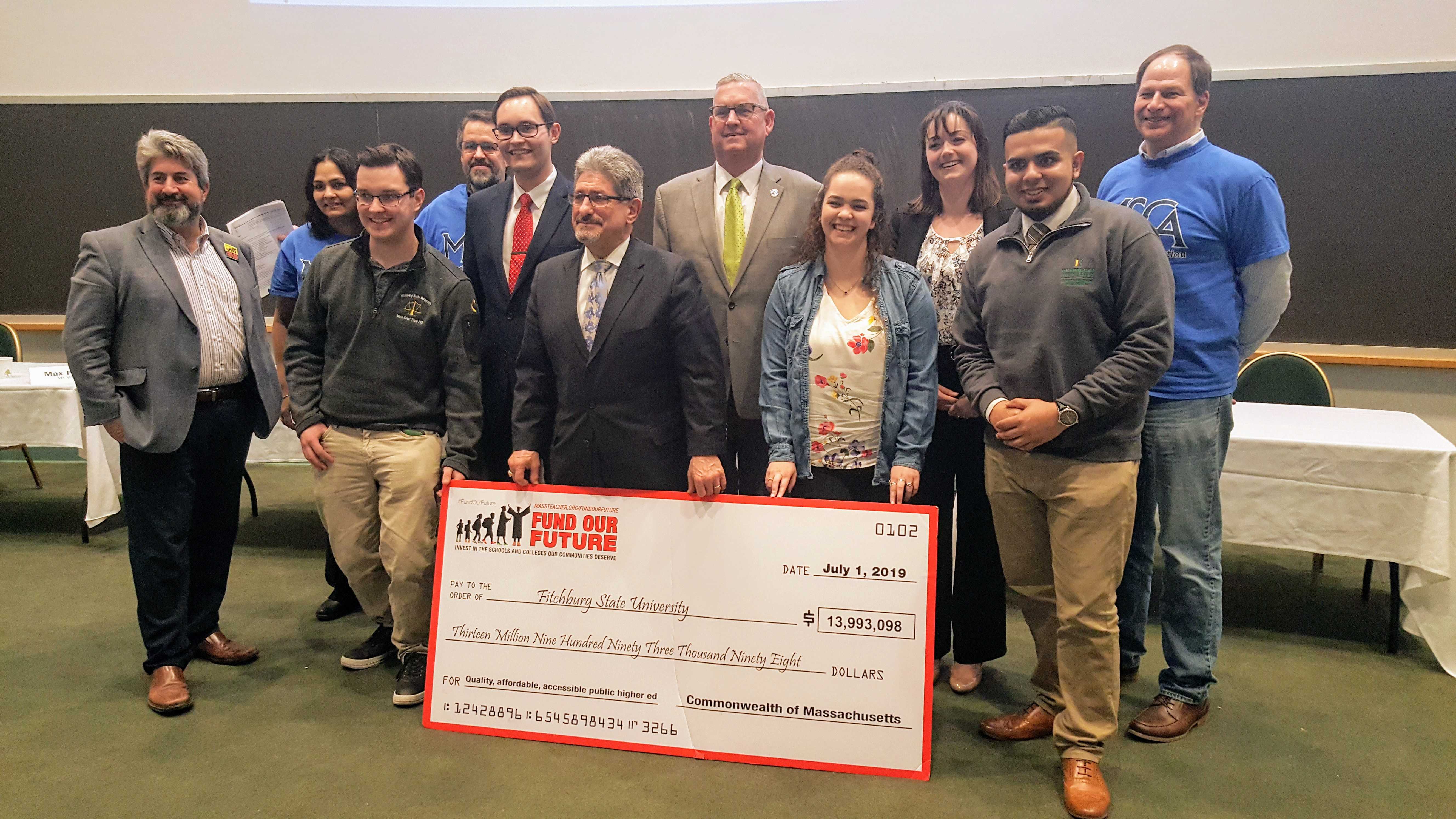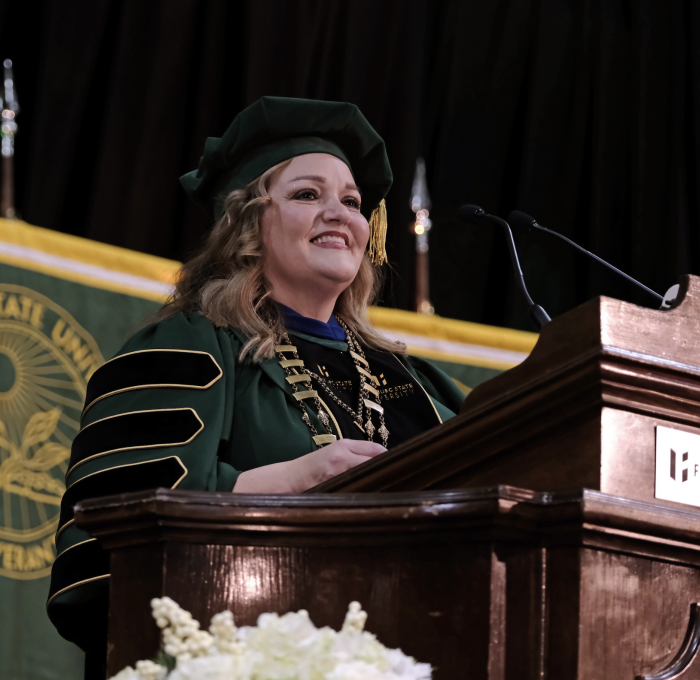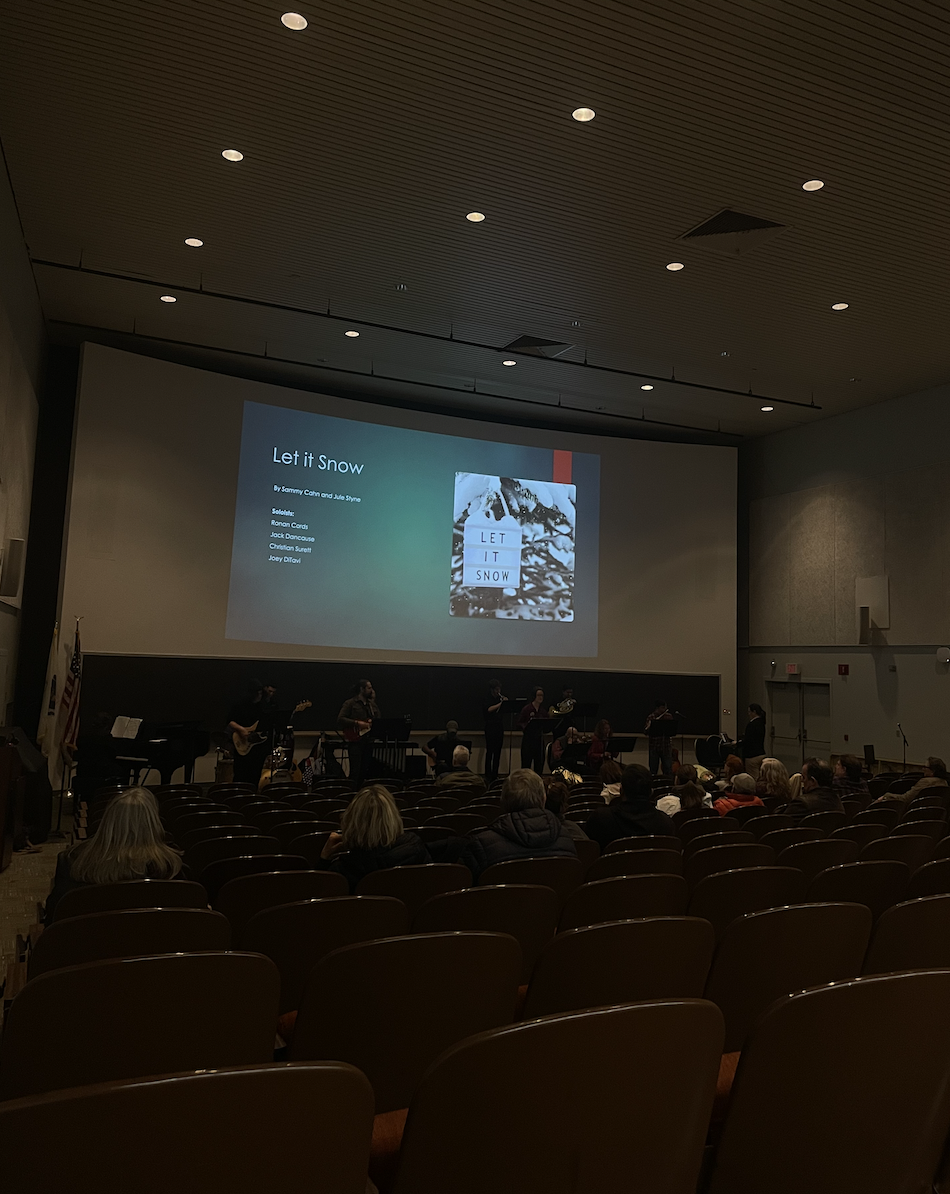
By Kurtis Kendall
On Tuesday, Mar. 26, Fitchburg State hosted the “Fund Our Future Forum” which brought together students, faculty, Fitchburg local government officials, and Massachusetts State Representatives. All were present to discuss the growing concern of student debt and cost of higher education.At the event, statistics were presented to put all the figures into perspective. Tuition and fees at MA State Universities have more than doubled from Fall 2001 to Fall 2018, going from around $4,000 per semester to almost $10,000 on average. In this same time period, when adjusted for inflation, the State has cut spending on higher education per resident-student by 31%, a drop from $12,500 in 2001 to only $8500 in 2018.
On top of this, the State also cut funding for scholarship programs from $150 million in 2001 to only $102 million in 2018, when adjusted for inflation. The result of these cuts is the shifting of a much larger portion of higher education cost onto students, increasing their loan debt and limiting the accessibility of college to those in less affluent circumstances. From 2003-04 to 2015-16, student debt in MA soared from $17,126 to $30,248, a 77% increase. Fitchburg State professor Michael Stassen pointed out the trend of debt over the past decade and a half. “In 2004, Massachusetts ranked second lowest in student loan debt. Today we’re the 10th highest.”
To address these issues, the forum featured many speakers, including Fitchburg State students who gave testimony as to their college debt stories and situations.
Senior Tallie Foster spoke of her struggles to pay for college being a first generation college student who was granted little financial aid. “It hurts to think about how much more I could’ve done [at school] if it wasn’t for trying to work off my student debt.” Foster stated how she typically works over 20 hours a week while being a full time student in order to pay off her loans, as well as for food and rent.
Junior Matthew Murphy spoke about his auspicious situation while also saying much more needs to be done for both students like him and those in less opportune positions. “I am extremely fortunate,” said Murphy, referring to having parents who can help him pay for college, “but I’ll still be graduating with thousands in debt.”
“Less and less students every year are attending college,” continued Murphy, “they’re not opting out because college isn’t valuable, but because it’s too much of a burden to pay.” Murphy went on to say that it is “fundamentally un-American” to have a college system that operates like a “birth lottery” where only the students born into more wealthy families get to attend college.
“For me to be able to be here is crazy to believe,” said Michaela Vick, a junior at Fitchburg State. Vick’s mother passed when she was young and her father earns a wage below the poverty line. “How am I going to pay off my debt becomes an increasing concern as I near graduation,” said Vick. “I feel this worry should not exist. Future students deserve to not be as stressed out.”
To combat this issue, the Cherish Act has been proposed by state legislators. The bill calls for over $500 million in new state funds for public higher education institutions. The act would freeze tuition and fees at their current level for the next five years, allowing students to benefit from the increase in funds without a raising of the cost of college.
“Every student in Massachusetts deserves access to higher education,” said senior Alexander Ramos Jr. Ramos urges support for the Cherish Act, as the current burden on students for school is much too high. “College should not be a death sentence,” said Ramos.
On Apr. 30th at 10:30 a.m., there is a hearing for all Massachusetts higher education bills, including the Cherish Act. Massachusetts Teachers Association Vice President Max Page said the Cherish Act is “a return to the level of investment we used to make [for students].” Page also called for as many people as possible to attend a rally supporting the bill outside the state house on May 16th.
State Representative Stephen Hay talked about how important these issues are and the importance of education. “You folks have something to say, and we all need to listen.” Hay also spoke about another bill in the works to make community college free to attend in Massachusetts. “If we really value education, then making an associate’s degree free is the first step.” Hay mentioned how the value of a high school diploma isn’t what it used to be, with college degrees needed more than ever in the job market.
Professor Aruna Krishnamurthy, the MSCA President at Fitchburg State and part organizer of the event concluded the forum with hopeful words toward a better higher education system for students. “We have learned much and there is much to do to usher in an era of debt free education for our students.”






